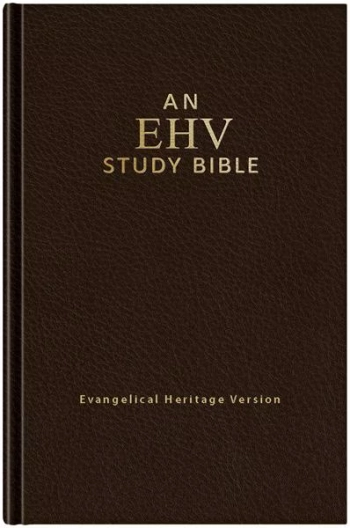1599 Geneva Bible (GNV)
The Geneva Bible: A Cornerstone of English Protestantism A Testament to Reform The 1599 Geneva Bible... Read More
The Evangelical Heritage Version (EHV) is a modern English translation of the Bible produced by the Wartburg Project, a group of pastors, professors, and teachers affiliated with the Wisconsin Evangelical Lutheran Synod (WELS) and the Evangelical Lutheran Synod (ELS). It was released in its entirety in 2019, with the New Testament and Psalms published earlier in 2017.
The EHV is distinctly Lutheran in its theological orientation. It seeks to accurately convey the biblical message while remaining faithful to the confessional Lutheran understanding of Scripture. The translation is rooted in the Lutheran Confessions and aims to support the Church’s preaching and teaching ministry.

The EHV strives for a balance between formal equivalence and dynamic equivalence. This means that it seeks to maintain the grammatical structure and word order of the original languages while also producing a translation that is clear and understandable to modern readers. The goal is to create a text that is both faithful to the original meaning and accessible to a wide audience.
The EHV has been well-received by Lutheran Christians who appreciate its theological grounding and commitment to accuracy. It has been adopted by many Lutheran churches and is used in Bible studies, preaching, and teaching.
While the EHV may not have the same level of popularity as some other major translations, it has carved out a niche for itself among Lutherans seeking a translation that reflects their theological heritage.
The Evangelical Heritage Version is a valuable addition to the landscape of English Bible translations. Its Lutheran perspective, combined with its commitment to accuracy and readability, makes it a strong choice for those seeking a translation that aligns with their theological convictions. The EHV is likely to continue to grow in popularity among Lutheran Christians as it establishes itself as a reliable and trustworthy resource.